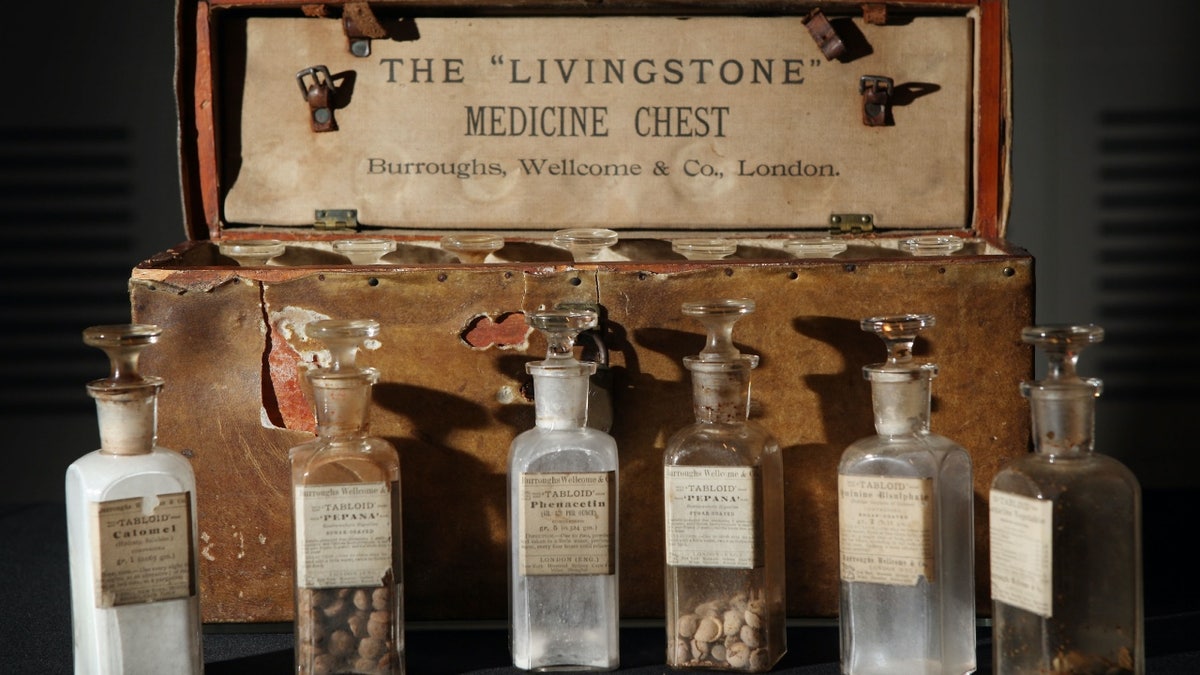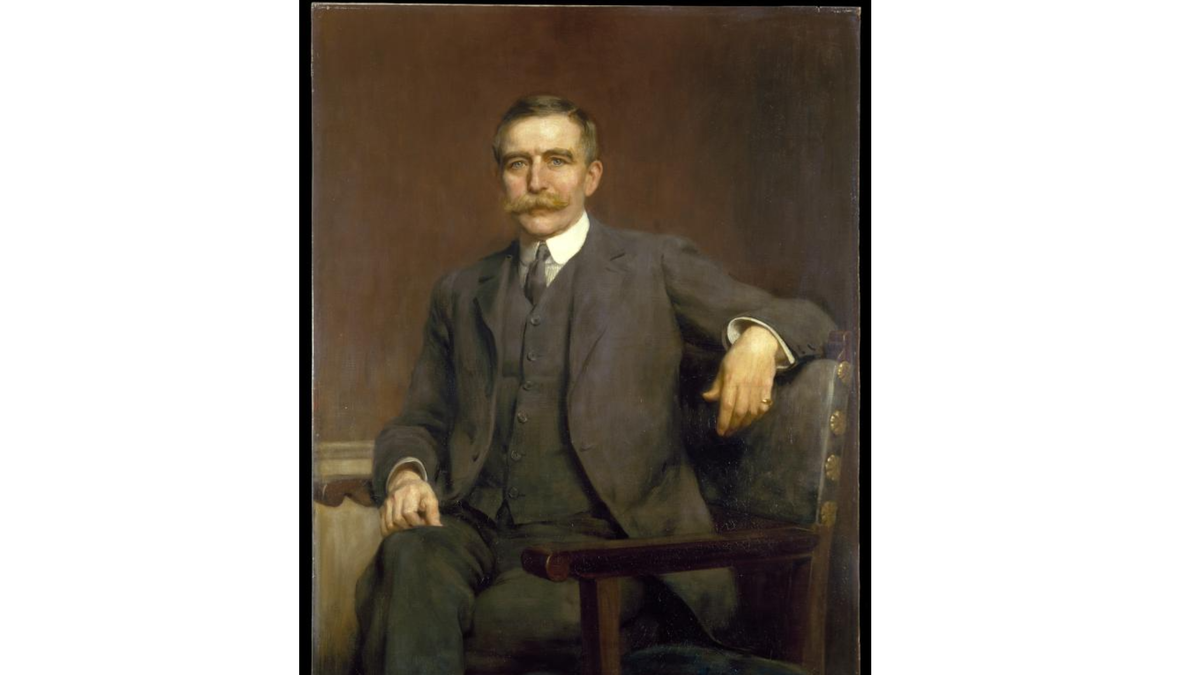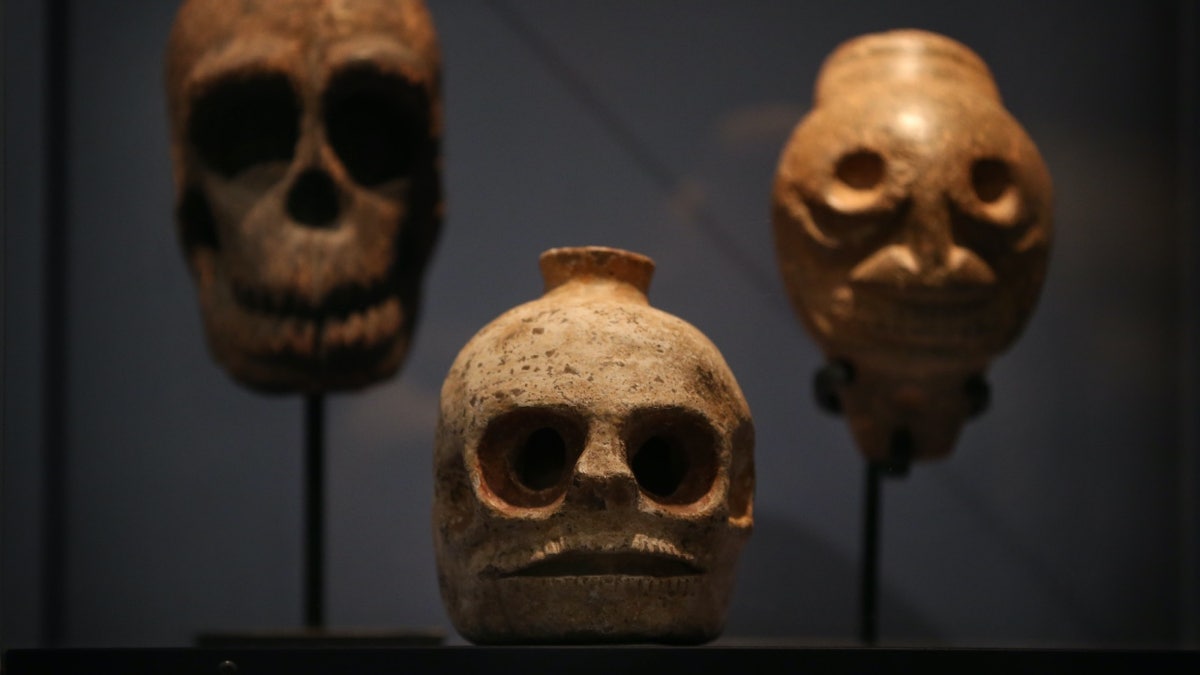Osbourne: People want to be 'overly woke'
Fox Nation host and former "The Talk" co-host Sharon Osbourne joins "Tucker Carlson Tonight" as she looks back on being canceled after defending longtime friend Piers Morgan.
A prominent museum in London is shuttering a long-standing exhibit dedicated to the history of medicine because of its alleged "racist, sexist and ableist theories and language."
The Wellcome Collection is ending its "Medicine Man" display after 15 years in what the museum called "a significant turning point," according to the Guardian.
The Wellcome Collection was founded when Sir Henry Wellcome, an American pharmaceutical entrepreneur who died in 1936, donated more than 1 million objects to the museum, many of which were related to the history of world medicine.
Some of the objects have recently proven controversial, such as a 1916 painting titled "A Medical Missionary Attending to a Sick African," which depicts a White missionary tending to a sick African person as Jesus Christ stands over the missionary's shoulder.
The painting was ultimately removed and placed in storage for allegedly "perpetuating racial stereotypes and hierarchies."

The Livingstone Medicine Chest from 1900-1910 from the Wellcome Collection is displayed on Jan. 19, 2011, in London. (Peter Macdiarmid/Getty Images)
"We can't change our past. But we can work towards a future where we give voice to the narratives and lived experiences of those who have been silenced, erased and ignored," the museum said in a Twitter thread last week.
"We tried to do this with some of the pieces in Medicine Man using artist interventions. But the display still perpetuates a version of medical history that is based on racist, sexist and ableist theories and language."
The thread went on to allege that the extensive collection of paintings, books and anatomical models made of wood, wax and ivory that date back to the 17th century tell a story about a man with "enormous wealth, power and privilege."
CAMBRIDGE UNIVERSITY DRAWS CRITICISM FOR ‘WOKE’ GENDER-NEUTRAL GERMAN CURRICULUM
"The result was a collection that told a global story of health and medicine in which disabled people, Black people, Indigenous peoples and people of colour were exoticised, marginalised and exploited - or even missed out altogether," the museum wrote.
Some on Twitter excoriated the museum for closing the permanent exhibit that was free to the public.
TOPPLED UK STATUE OF SLAVE TRADER QUIETLY REPLACED WITH SCULPTURE OF BLACK LIVES MATTER PROTESTER
"An act of cultural vandalism to close without even having any idea of what will take its place," one user tweeted.
"Is there no one who can get rid of these cultural vandals instead or does the rot go all the way to the top? Is this the prelude to whole museums closing because their collections aren’t woke enough?" wrote another user.

Sir Henry Wellcome, who was born 1853 in a log cabin on the Wisconsin frontier, became a pharmaceutical entrepreneur with a passion for collecting medical artifacts. (Library of Congress)
A new exhibit detailing health-related stories from historically marginalized communities will roll out in the coming years, according to the museum's website.
In 2019, the museum brought on a new director, Melanie Keen, who expressed a desire to determine who the rightful owners of the museum's objects were and how Wellcome came to obtain them, the Guardian reported.

Skulls and skull-shaped vessels are displayed at the "Death: A Self-portrait" exhibition at the Wellcome Collection on Nov. 14, 2012, in London. (Peter Macdiarmid/Getty Images)
"It feels like an impossible place to be worrying about this material we hold without interrogating what it is, what narratives there are to be understood in a more profound way, and how the material came to be in our collection," Keen said.
CLICK HERE TO GET THE FOX NEWS APP
The museum did not immediately respond to Fox News Digital's request for comment.









































